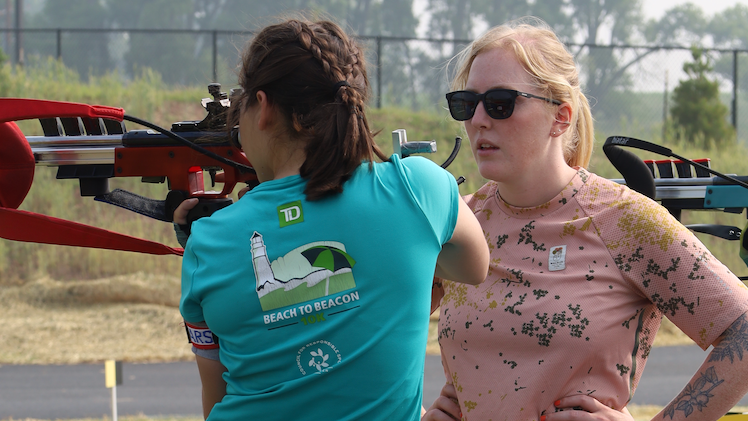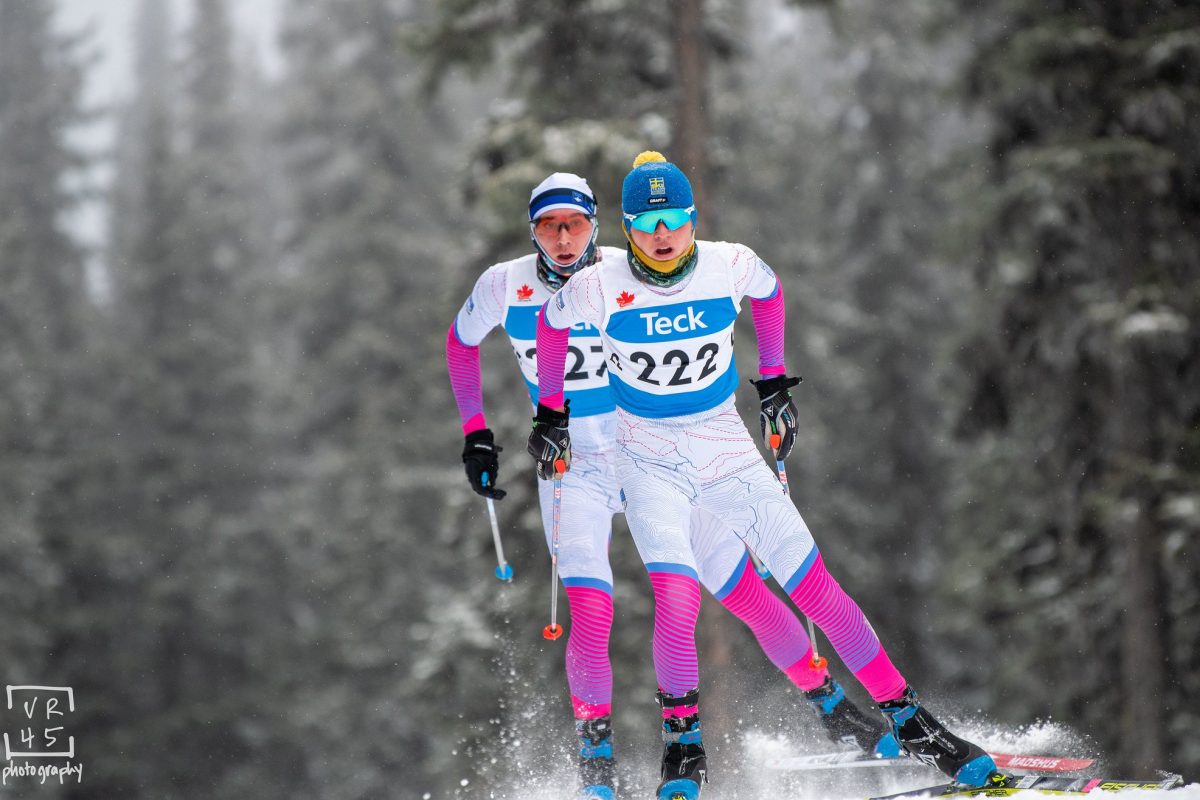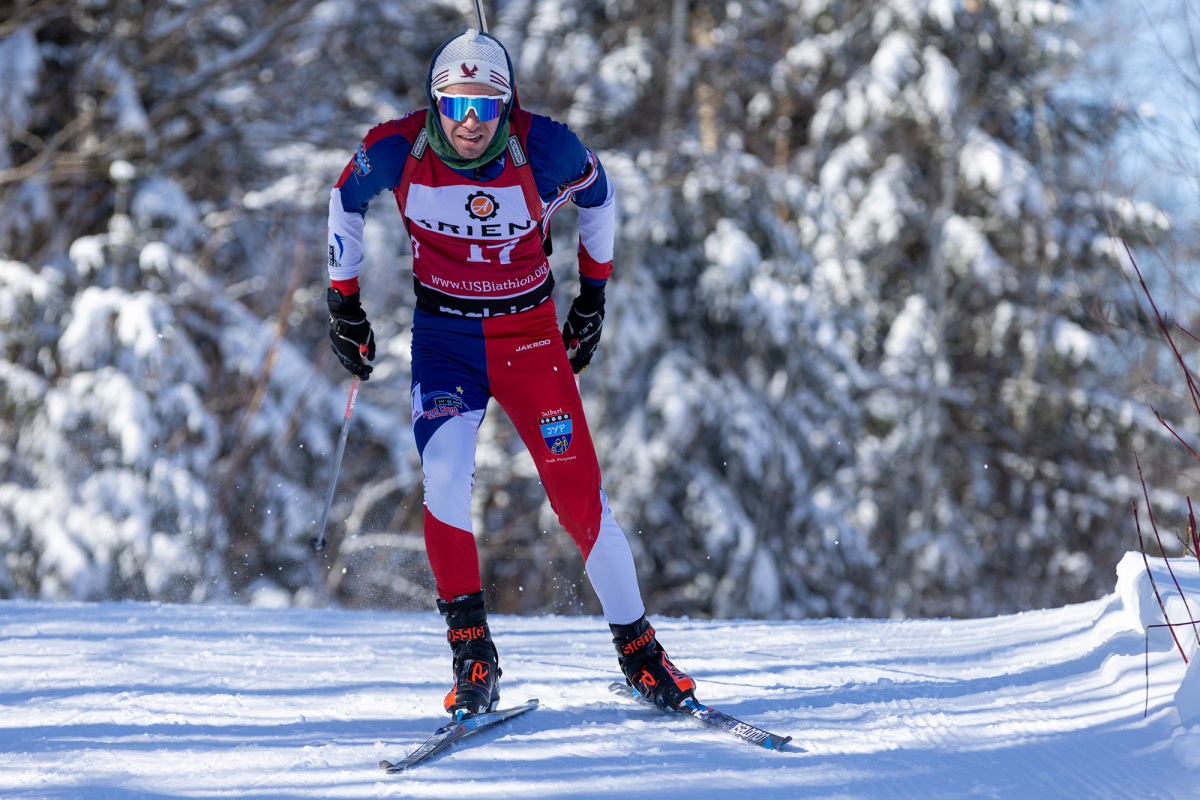At World Championships in Khanty-Mansiysk, Russia this year, the Ukrainian women’s biathlon team already had to deal with mixed feeling about their silver medal performance in the relay. Now, they have to add another variable to the mix – a mistake which led to a positive doping test by their anchor skier, Oksana Khvostenko.
A Strong World Championships Showing
Coming into the last handoff in the 4 x 6 k relay, Ukraine was in the lead. Twins Vita and Valj Semerenko had stayed in second position through the first two legs, and then Olena Pidhrushna had used a single spare round in the third leg to lead into the final handoff. She had only six seconds on the Belorussian team but over a minute on the rest of the field.
Khvostenko, however, was unable to seal the deal. The 33-year-old veteran had opted out of the individual race four days earlier due to a respiratory illness which had clearly left her in less than top form. While she shot cleanly and used no spare rounds, her ski time was merely the ninth fastest among anchor legs and she looked slow and heavy. German superstar Magdalena Neuner flew by her to win gold by 24 seconds.
Despite a lackluster performance, thanks to the one-minute cushion she started with Khvostenko held on for silver, stopping to grab a Ukrainian flag before crossing the finish line.
For the team, the result matched their performance in Ostersund, Sweden, in 2009. It was a clear positive after they had finished eighth in the last World Cup relay, but watching a seemingly insurmountable lead over the other favorites dwindle and then disappear was heartbreaking.
“It was great being up on the podium today with my sister… But the medal was more than just us; it was a team effort today,” Valj Semerenko said at the time.
The other twin, Vita Semerenko, had collected bronze in the individual race thanks to Khvostenko, who voluntarily sat it out because of her cough.
“The coaches told me that I would not start, and that Oksana Khvostenko would start,” she said after receiving the first individual World Championships medal of her career. “I was very disappointed… Then Oksana came to me and said that she was not in top form and gave me the opportunity to start today. I really thank her for this opportunity.”
Along with that bronze medal, the Ukrainian men had placed third in their own relay race, making it one of the most successful World Championships ever for the small country, which has just over half the population of Germany.
A Positive Test
Now, however, it is unclear whether the women’s relay team will even be able to keep their medals. It was recently announced that Khvostenko’s doping control sample from the Championships was positive for ephedrine, which along with most other chemical stimulants is banned by the World Anti-Doping Association (WADA).
Khvostenko claims that ephedrine was an ingredient prescribed in her cough syrup, bronholitin, and that she did not realize that she was only supposed to take the syrup during training and not during competition. Bronholitin, a combination cough suppressant and expectorant which is produced by the Bulgarian pharmaceutical company Sopharma, does list ephedrine as one of its ingredients.
“During her preparation for the World Championships, Oksana was sick,” the Ukrainian federation said in a statement. “She coughed a lot and was prescribed a cough syrup that contained ephedrine. Oksana continued treatment during competition without thinking that it might exceed [the minimum allowable concentration] because usually we have the right to give such drugs to biathletes.”
On June 1st, Khvostenko went before an International Biathlon Union board in Salzburg, Austria to explain why she tested positive. The committee has yet to announce any decision about how it will handle the case.
If the team is stripped of their medals, third-place France will receive the silver and fourth-place Belarus the bronze.




One comment
lsiebert
June 9, 2011 at 7:04 pm
Not to be a cynic…but in light of so many other professional athletes accused of doping making half-assed excuses or shifting the blame onto others or onto “ignorance”, and then later being proven to be outright dirty lying cheaters, should we even TRY and take the excuses at face value anymore? Fasterskier clearly does, as evidenced by the description of the doping violation as a “mistake” which the athlete and/or team has to overcome. Training too much the week before a big race is a mistake. Kris Freeman screwing up his completely experimental insulin regimen is a mistake. Taking banned substances is not a mistake. I read the bottle on the OTC medications I take, when I do take them, and noone is testing my blood or my pee. If my professional career were on the line, I would be seriously concerned about what I was putting in my body.
Or I wouldn’t care, and I would be shooting myself full of everything I could get my hands on to get faster because success is worth it at all costs, dammit.